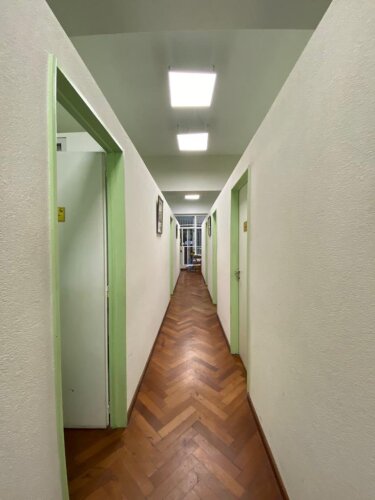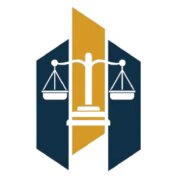Best Constitutional Law Lawyers in Argentina
Share your needs with us, get contacted by law firms.
Free. Takes 2 min.
Or refine your search by selecting a city:
List of the best lawyers in Argentina
About Constitutional Law in Argentina
Constitutional law in Argentina is primarily based on the Argentine Constitution, which was first enacted in 1853 and has been amended several times to address political and social changes. The Constitution is the supreme law of Argentina and establishes the structure of the government, the division of powers, and the fundamental rights and freedoms of its citizens. It plays a critical role in protecting civil liberties and ensuring the functioning of a democratic system. Argentine constitutional law is thus geared towards maintaining a balance of power among the state's three branches-executive, legislative, and judicial-and safeguarding individual rights against governmental abuse.
Why You May Need a Lawyer
There are several situations in which you might require legal assistance in the field of constitutional law in Argentina, including:
- Assert or challenge governmental actions that you believe infringe upon constitutional rights.
- Seek clarity and enforcement of rights enshrined in the Constitution within civil or criminal proceedings.
- Engage in public interest litigation to address broader socio-political issues under constitutional purview.
- Legal challenges pertaining to electoral law or political representation.
- Disputes concerning the separation of powers or interpretation of constitutional provisions.
Local Laws Overview
The key aspects of constitutional law in Argentina revolve around the following principles:
- Separation of Powers: Ensures checks and balances among the executive, legislative, and judicial branches.
- Protection of Fundamental Rights: The Constitution guarantees several rights including freedom of speech, religion, and assembly; the right to privacy; and due process under the law.
- Federal System: Argentina operates under a federal system, distributing sovereignty between national and provincial governments.
- Amendment Process: The Constitution outlines specific procedures for its amendment, reflected in historical reforms.
- Judicial Review: Courts have the power to declare laws or governmental actions unconstitutional.
Frequently Asked Questions
What is the role of the Supreme Court in Argentina?
The Argentine Supreme Court is the highest judicial authority. It has the power to interpret the Constitution, resolve disputes over the legality of government actions, and ensure laws comply with constitutional principles.
How can I challenge a law that I believe is unconstitutional?
If you believe a law violates your constitutional rights, you can file a lawsuit in provincial or national courts, which have the authority to hear constitutional matters.
Can provinces in Argentina have their own constitutions?
Yes, provinces can have their own constitutions, which must align with the national Constitution and respect its principles.
What are civil liberties under the Argentine Constitution?
Civil liberties under the Argentine Constitution include freedom of speech, press, and religion, the right to privacy and property, and protection against unlawful detention.
Is there right to privacy under Argentine constitutional law?
Yes, the Argentine Constitution includes provisions that protect individuals' privacy, including their homes, communications, and personal information.
Are there constitutional protections for indigenous peoples in Argentina?
Yes, the 1994 constitutional reform recognizes the rights of indigenous peoples, including their cultural identity, lands, and participation in decisions affecting them.
How does the Argentine constitution address human rights issues?
The Argentine Constitution elevates international human rights treaties to constitutional status, ensuring strong protection for human rights within its borders.
What is habeas corpus in the context of Argentine law?
Habeas corpus is a legal procedure that protects individuals against unlawful detention, allowing them to request a court to examine the legality of their detention.
Can citizens directly participate in the amendment of the Constitution?
Citizens don't directly amend the Constitution. Amendments follow a formal process involving Congress and a Constitutional Convention.
What role do international treaties play in Argentine constitutional law?
International treaties that Argentina ratifies, especially those related to human rights, are integral to its constitutional framework, having a hierarchical status that often places them above national laws.
Additional Resources
For more information and legal assistance, consider reaching out to the following resources:
- Official Government Websites: Such as the Argentine Ministry of Justice and Human Rights, which offers guidance on legal matters.
- Law Faculties: Renowned institutions like the University of Buenos Aires offer extensive research on constitutional law.
- Non-Governmental Organizations: Organizations like the Center for Legal and Social Studies (CELS) advocate for the protection and promotion of human rights.
- Provincial Legal Aid Services: Each province provides services that may help in constitutional matters.
Next Steps
If you require legal assistance in constitutional law, it is essential to act promptly. Start by identifying the nature of your legal concern, and consider consulting with a qualified constitutional lawyer. You can contact professional associations like the Bar Association of Argentina for referrals to experienced lawyers. Additionally, gathering relevant documentation and information about your case will aid the legal consultation process. Remember, early engagement with legal professionals can significantly affect the outcome of your constitutional issue.
Lawzana helps you find the best lawyers and law firms in Argentina through a curated and pre-screened list of qualified legal professionals. Our platform offers rankings and detailed profiles of attorneys and law firms, allowing you to compare based on practice areas, including Constitutional Law, experience, and client feedback.
Each profile includes a description of the firm's areas of practice, client reviews, team members and partners, year of establishment, spoken languages, office locations, contact information, social media presence, and any published articles or resources. Most firms on our platform speak English and are experienced in both local and international legal matters.
Get a quote from top-rated law firms in Argentina — quickly, securely, and without unnecessary hassle.
Disclaimer:
The information provided on this page is for general informational purposes only and does not constitute legal advice. While we strive to ensure the accuracy and relevance of the content, legal information may change over time, and interpretations of the law can vary. You should always consult with a qualified legal professional for advice specific to your situation.
We disclaim all liability for actions taken or not taken based on the content of this page. If you believe any information is incorrect or outdated, please contact us, and we will review and update it where appropriate.
Browse constitutional law law firms by city in Argentina
Refine your search by selecting a city.














